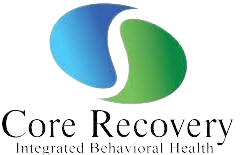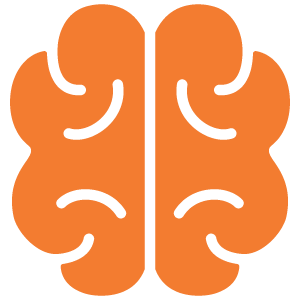In the world of substance abuse treatment, there are various paths to recovery, each tailored to meet individual needs. One increasingly popular option is Intensive Outpatient Programs (IOPs), offering a middle ground between the structure of residential treatment and the flexibility of outpatient care. In this article, we delve into the myriad benefits of choosing an IOP for substance abuse treatment. From maintaining daily routines to fostering a sense of independence and accountability, IOPs provide a comprehensive approach to healing that empowers individuals to navigate life while prioritizing their recovery journey. With customizable treatment plans, access to therapy and support groups, and the opportunity to apply newly acquired skills in real-world settings, IOPs offer a holistic approach to recovery that addresses the complexities of addiction while supporting long-term sobriety. Join us as we explore the transformative advantages of embracing an IOP as part of your path to healing and wellness.
Holistic Healing: The Comprehensive Approach of Intensive Outpatient Programs (IOPs) for Substance Abuse Treatment
In the realm of substance abuse treatment, the concept of holistic healing has gained significant traction. It recognizes that addiction is not solely a physical ailment but a complex interplay of biological, psychological, social, and spiritual factors. Intensive outpatient programs (IOPs) have emerged as a beacon of holistic healing, offering a comprehensive approach to address the multifaceted nature of addiction. In this article, we’ll explore how IOPs embody the principles of holistic healing and why this approach is crucial for effective substance abuse treatment.
Physical Healing
The physical dimension of holistic healing in IOPs involves addressing the physiological effects of substance abuse on the body. This may include medical assessments, withdrawal management, nutritional support, exercise regimens, and medication-assisted treatment. By restoring physical health and vitality, individuals are better equipped to engage in the recovery process with clarity and strength.
Psychological Healing
Substance abuse often stems from underlying psychological issues such as trauma, anxiety, depression, or low self-esteem. Holistic healing in IOPs prioritizes mental health by providing individual and group therapy, cognitive-behavioral interventions, psychoeducation, and trauma-informed care. Through introspection and self-discovery, individuals learn to identify and address the root causes of their addiction, paving the way for lasting psychological healing.
Social Healing
Addiction can strain relationships, isolate individuals from their support networks, and erode their sense of belonging. IOPs foster social healing by emphasizing the importance of community, peer support, and family involvement. Group therapy sessions, family therapy, peer mentorship programs, and social activities promote interpersonal connections and rebuild fractured relationships, creating a supportive environment conducive to recovery.
Spiritual Healing
Spirituality is a deeply personal aspect of holistic healing that transcends religious beliefs. It pertains to finding meaning, purpose, and connection to something greater than oneself. In IOPs, spiritual healing may involve exploring existential questions, practicing mindfulness and meditation, engaging in expressive therapies, and reconnecting with values and aspirations. By nurturing the spiritual dimension, individuals cultivate a sense of inner peace, resilience, and hope that strengthens their recovery journey.
Integration and Continuity of Care
A hallmark of holistic healing in IOPs is the seamless integration of various therapeutic modalities and the continuity of care across different phases of treatment. From initial assessment and detoxification to ongoing therapy and aftercare planning, individuals receive comprehensive support tailored to their evolving needs. This integrated approach ensures a smooth transition between levels of care and promotes sustained recovery beyond the confines of the treatment program.
Tailored Treatment: Personalized Care Plans in Intensive Outpatient Programs (IOPs) for Substance Abuse
Intensive outpatient programs (IOPs) are renowned for their personalized approach to substance abuse treatment. By tailoring care plans to meet the unique needs of each individual, IOPs maximize the effectiveness of their interventions, fostering a path to sustainable recovery. Let’s delve into the key points highlighting the importance of personalized care plans in IOPs.
- Individualized Assessment: IOPs begin by conducting comprehensive assessments to understand the individual’s history, substance use patterns, co-occurring disorders, and personal circumstances. This information forms the basis for developing a personalized care plan that addresses the individual’s specific needs and goals.
- Customized Treatment Modalities: Based on the assessment findings, IOPs offer a range of treatment modalities tailored to the individual’s needs. These may include individual therapy, group therapy, family therapy, medication management, psychoeducation, holistic therapies, and experiential activities.
- Flexibility and Adaptability: Personalized care plans in IOPs are designed to be flexible and adaptable to accommodate the individual’s evolving needs throughout the recovery process. Adjustments may be made to treatment modalities, frequency of sessions, and therapeutic interventions based on progress, challenges, and feedback from the individual.
- Dual Diagnosis Treatment: Many individuals with substance abuse disorders also experience co-occurring mental health conditions. IOPs integrate dual diagnosis treatment into personalized care plans, addressing both substance use and mental health issues concurrently to ensure comprehensive and effective treatment.
Personalized care plans are at the heart of intensive outpatient programs (IOPs) for substance abuse treatment.
Continued Care: The Importance of Aftercare Support in Intensive Outpatient Programs (IOPs)
Completing an Intensive Outpatient Program (IOP) marks a significant milestone in the journey toward recovery from substance abuse. However, the transition from structured treatment to independent living can present new challenges and triggers for individuals in recovery. Aftercare support plays a crucial role in bridging this gap, providing ongoing guidance, resources, and accountability to help individuals maintain sobriety and thrive in their newfound freedom. In this article, we’ll explore the importance of aftercare support in IOPs and its role in promoting sustained recovery.
Continuity of Treatment
Aftercare support ensures continuity of treatment by extending the therapeutic interventions and support systems established during the IOP. This may include continued access to individual therapy, group counseling, medication management, and psychiatric care. By maintaining regular contact with treatment providers, individuals receive ongoing support tailored to their evolving needs, reducing the risk of relapse.
Relapse Prevention
One of the primary goals of aftercare support is to prevent relapse and help individuals navigate high-risk situations effectively. After completing an IOP, individuals may face triggers such as stress, cravings, social pressures, or environmental cues that could jeopardize their sobriety. Aftercare support equips individuals with coping strategies, relapse prevention techniques, and emergency response plans to manage cravings and cope with triggers without resorting to substance use.
Accountability and Monitoring
Aftercare support provides a structured framework for accountability and monitoring, helping individuals stay on track with their recovery goals. This may involve regular check-ins with a counselor, participation in support groups or sober living communities, or adherence to a relapse prevention contract. By fostering accountability, individuals remain motivated and committed to their sobriety, knowing that they are not alone in their journey.
Skill Building and Reinforcement
Aftercare support offers opportunities for continued skill building and reinforcement of coping mechanisms learned during the IOP. This may include workshops, educational sessions, or experiential activities focused on topics such as stress management, communication skills, healthy relationships, and leisure pursuits. By reinforcing positive behaviors and providing ongoing education, aftercare support empowers individuals to navigate life’s challenges with confidence and resilience.
Social Support and Peer Networks
Aftercare support facilitates the development of social support networks and peer connections, which are instrumental in maintaining sobriety. This may involve participation in alumni groups, recovery meetings, or peer-led support networks where individuals can share their experiences, provide mutual encouragement, and offer guidance to those in earlier stages of recovery. By fostering a sense of belonging and camaraderie, aftercare support reduces feelings of isolation and strengthens individuals’ commitment to sobriety.
Conclusion
Choosing Core Recovery’s Intensive Outpatient Program (IOP) for substance abuse treatment in Phoenix, Arizona, presents an array of invaluable benefits. With our tailored approach, compassionate staff, and comprehensive services, individuals seeking recovery can find solace and support in their journey towards sobriety. Through our holistic methods and commitment to individualized care, we empower our clients to reclaim control over their lives, fostering long-lasting healing and personal growth. At Core Recovery, we stand as a beacon of hope, dedicated to guiding individuals towards a brighter, substance-free future.




 In CA By O360®
In CA By O360®







